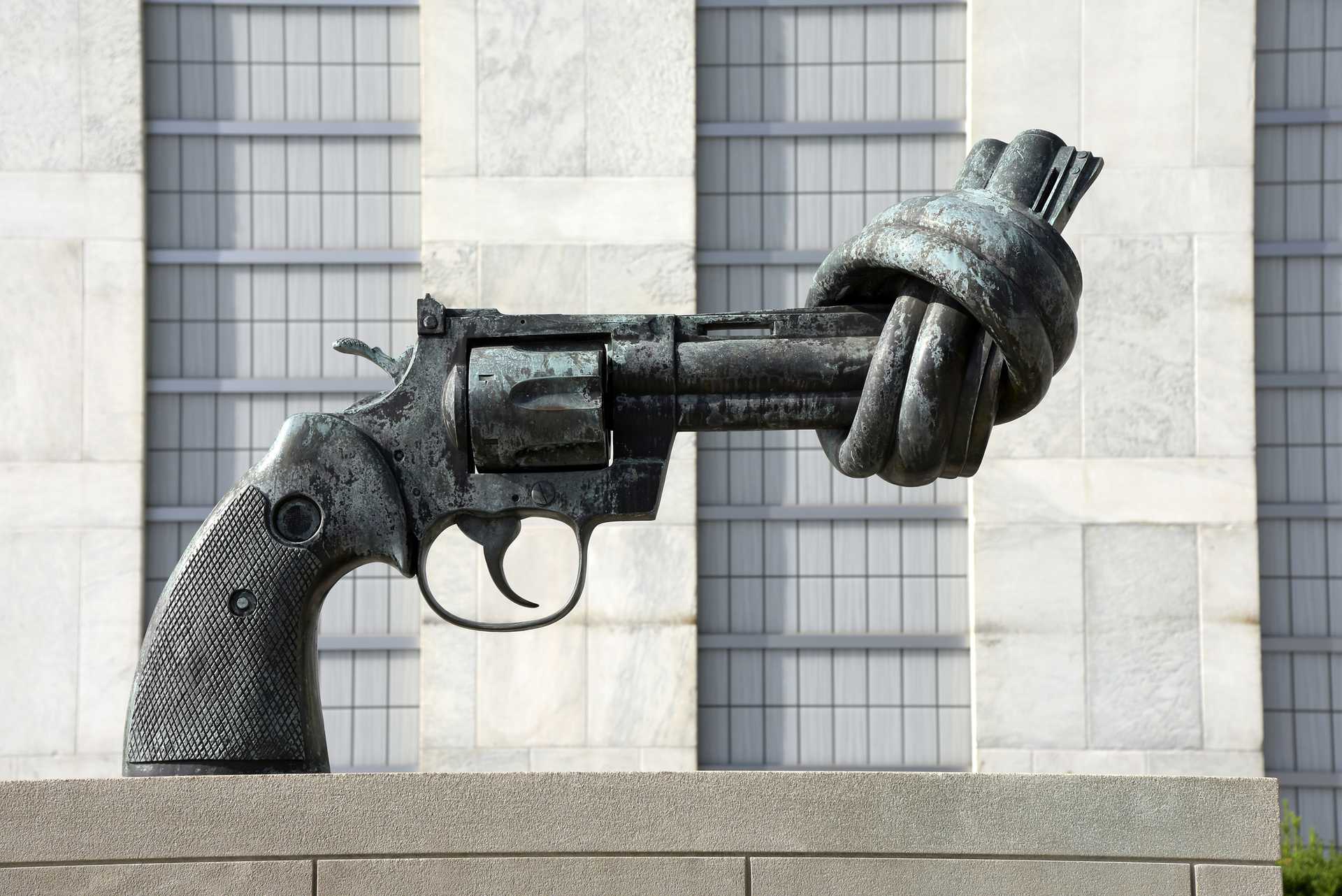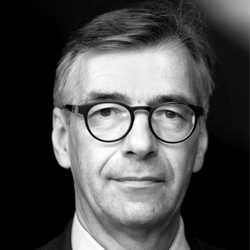
Above: Non-Violence by Carl Fredrik Reuterswärd at the United Nations headquarters, August 2017.
The Foundations of Arms Control
For several decades, arms control, non-proliferation and disarmament have played a key role in many states’ security and foreign policies. This learning unit provides a general introduction to the field and explains how arms control can help to promote international peace and security.
Start learning unitChapters
Learning Objectives
Learning objectives
This learning unit aims to provide you with a basic understanding of arms control and explains how it can help to promote international peace and security. You will learn the core objectives of arms control and how the concepts of sarms control relate to non-proliferation, disarmament, humanitarian arms control and other critical approaches. After completing this learning unit, you will also understand what types of weapons exist, how exactly these can be regulated by arms control, and what the factors of success are. Lastly, you will learn why verification is a crucial component of arms control and what the future of arms control might hold.
Credits
Disclosures
Content Warning
This learning unit may contain audio-visual material or texts, which may not be suitable for all audiences.
Funding
This Learning Unit was produced with financial assistance from the European Union. The contents of this Learning Unit are however the sole responsibility of the author(s) and should under no circumstances be regarded as reflecting the position of the European Union.
External Links
The site may contain hyperlink text references (’Links’) to other sites that are offered by third parties. These Links are made available solely for the purpose of information and as an additional service for users. Only the respective operator is responsible for all content and statements on linked Internet sites. Therefore, PRIF cannot guarantee the correctness and accuracy or any other aspect of third party sites.
Preferred Citation
Christopher Daase and Frank Kuhn, "The Foundations of Arms Control" in EUNPDC eLearning, ed. Niklas Schörnig, Peace Research Institute Frankfurt. Available at https://eunpdc-elearning.netlify.app/lu-01/, last modified 9 July 2025
Editorial Note
This is a beta version of the learning unit, which is regularly optimised. Please report any factual errors or discrepancies to the publisher. (support(at)nonproliferation-elearning.eu). Please note that although the original text was written by the authors, the video production and simplifications were carried out by PRIF.

